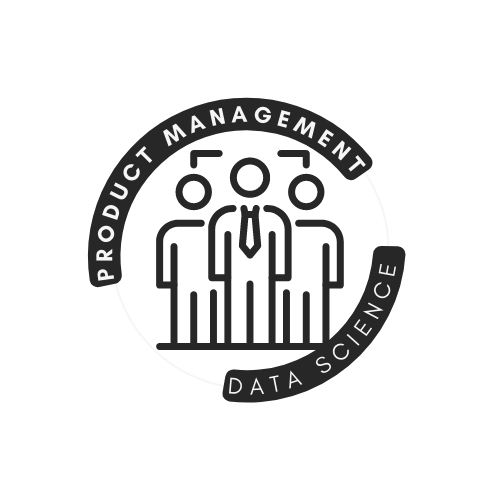In today’s data-driven world, data is a valuable asset for companies. Businesses that effectively leverage data have a competitive edge, and this has led to a growing demand for skilled professionals who can work with data. One of the key roles in this field is that of a Data Science Product Manager. In this article, we will explore the role, skills, and responsibilities of a Data Science Product Manager.
What is a Data Science Product Manager?
A Data Science Product Manager is responsible for the development, delivery, and management of data-driven products. This includes the creation of data products such as machine learning models, data visualizations, and dashboards, as well as the management of data infrastructure and pipelines. The Data Science Product Manager works closely with cross-functional teams, including data scientists, engineers, designers, and stakeholders to ensure that data products are aligned with business goals and user needs.
Essential Skills Required for a Data Science Product Manager
To be successful in this role, a Data Science Product Manager must possess a combination of technical and business skills. Some of the essential skills required for this role include:
- Data Science and Analytics: A Data Science Product Manager must have a deep understanding of data science and analytics. This includes knowledge of statistical methods, machine learning algorithms, and data visualization tools.
- Technical Expertise: Data Science Product Managers must have a technical background and be able to work with engineers and data scientists to build and manage data products. They should have a good understanding of data infrastructure and be able to work with tools such as SQL, Python, and R.
- Business Acumen: A Data Science Product Manager must be able to understand business goals and translate them into data products. They should be able to communicate effectively with stakeholders and have a good understanding of market trends.
- Product Management: A Data Science Product Manager should have experience in product management, including defining product roadmaps, prioritizing features, and working with cross-functional teams.
Responsibilities of a Data Science Product Manager
The responsibilities of a Data Science Product Manager can vary depending on the organization and the specific role. However, some of the key responsibilities include:
- Defining and Managing Product Roadmaps: The Data Science Product Manager is responsible for defining the product roadmap for data products. This includes prioritizing features and working with cross-functional teams to ensure that product goals are aligned with business goals.
- Managing Data Infrastructure: The Data Science Product Manager is responsible for managing data infrastructure, including data pipelines and data storage.
- Collaborating with Data Scientists and Engineers: The Data Science Product Manager works closely with data scientists and engineers to build and manage data products. This includes defining requirements, testing, and deploying data products.
- Communicating with Stakeholders: The Data Science Product Manager is responsible for communicating with stakeholders, including business leaders, data scientists, and engineers. This includes presenting data products and providing updates on product development.
Frequently Asked Questions
Can data scientist be product manager?
Yes, a data scientist can become a data science product manager by leveraging their technical expertise in statistical analysis to lead the development of data-driven products. However, they also need to possess strong business acumen and product management skills. To succeed in the role, they may need to gain additional experience in product management and develop strong communication and leadership skills.
What does a product manager data science do?
A Product Manager in Data Science oversees the development and delivery of data-driven products, working with cross-functional teams to ensure that data products align with business goals and user needs. They manage the product roadmap, prioritize features, and collaborate with data scientists and engineers to deploy data products. Additionally, they manage data infrastructure and communicate with stakeholders to present data products and provide updates on product development.
Do product managers need data science skills?
Product managers don’t need to be experts in data science, but having a basic understanding of data science principles is becoming increasingly important in today’s data-driven business environment. This allows them to work more effectively with data science teams and make informed decisions based on data insights. However, strong business acumen, communication skills, and product management skills are more important for product managers than data science expertise.
How do I become a data science product manager?
To become a data science product manager, you can take the following steps: develop a strong understanding of data science principles, gain experience in product management, build your communication and leadership skills, create a portfolio of data-driven projects, and network with other data science product managers. A combination of technical expertise, product management skills, and communication and leadership skills are necessary for this role.
data product manager vs data science product manager
A data product manager is responsible for overseeing the development and management of data products that provide insights or value to the company. This can include products like data visualization tools, data APIs, or data analytics platforms. They work with cross-functional teams to define product roadmaps, prioritize features, and ensure that data products align with business goals and user needs.
On the other hand, a data science product manager is specifically responsible for overseeing the development and delivery of data-driven products that leverage machine learning or other data science techniques. They work with data scientists and engineers to develop and deploy these products, manage the product roadmap, and communicate with stakeholders to present data products and provide updates on product development.
In summary, while there is some overlap between the roles of a data product manager and a data science product manager, the latter focuses specifically on products that leverage machine learning and other data science techniques.
How do I become a data product manager?
To become a data product manager, gain experience in product management, develop a strong understanding of data principles, build communication and leadership skills, create a portfolio of data-driven projects, and network with other data product managers. Combining product management skills, technical expertise, communication and leadership skills, and a strong portfolio is necessary to succeed as a data product manager.
Conclusion
Data Science Product Managers play a crucial role in the development and management of data products. They must possess a unique combination of technical and business skills and work closely with cross-functional teams to deliver data products that meet business goals and user needs. As the demand for data-driven products continues to grow, the role of a Data Science Product Manager will become increasingly important in organizations.
You may also like:
- Product Management: A Career Path
- What are the responsibilities of a technical product manager?
- AI/ML Product Management: Delivering Value through Innovation and Responsible Practices
Check out the table of contents for Product Management and Data Science to explore those topics.
Curious about how product managers can utilize Bhagwad Gita’s principles to tackle difficulties? Give this super short book a shot. This will certainly support my work.

